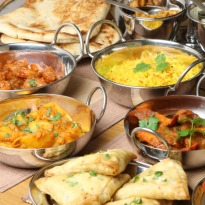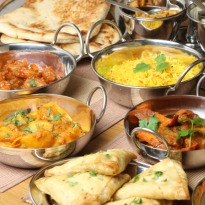 Vata Dosha is the biological energy manifested of the air and space element. It is cold, dry, rough and mobile by nature, and therefore any excess of this dosha will bring on similar qualities to the individual, eventually causing imbalance, disorder and disease. Through proper diet and lifestyle habits, one can learn how to remove these common Vata disorders and promote balance in the body and mind.
Vata Dosha is the biological energy manifested of the air and space element. It is cold, dry, rough and mobile by nature, and therefore any excess of this dosha will bring on similar qualities to the individual, eventually causing imbalance, disorder and disease. Through proper diet and lifestyle habits, one can learn how to remove these common Vata disorders and promote balance in the body and mind.
Read more about Vata Dosha here!
Common Symptoms of a Vata Dosha Imbalance
- Excessive worry, fear and anxiety
- Restless mind
- Dry, flaky skin
- Constipation
- Gas and bloating
- Low body weight
- Low blood pressure
- Shakiness
- Anemia
- Chronic depletion
- General fatigue
In Ayurveda, diet is a vital tool for fighting disease, preventing disease and finding balance in your daily life. If you currently have increased Vata in the system, here are some key dietary guidelines to follow:
Vata Diet DO’s
- Vata should favor the sweet, salty and sour tastes in the diet.
- Eat warm, hearty, well-cooked meals such as soups, casseroles, stews, oatmeal and porridge.
- Use an abundance of healthy oils in each meal. The best Vata options are sesame oil, almond oil and ghee.
- Spice each meal. The best spices for Vata are: turmeric, fresh ginger, cumin, fennel, ajwain, hing, brown mustard seed, black pepper, sesame seeds, cinnamon and nutmeg.
- Sweet, heavy, well-ripened fruits are very good for Vata including bananas, soaked raisins, dates, avocados, coconut, figs, peaches, pears, mangos, apricots, papaya, watermelon and plums.
- Sweet, heavy, well-cooked vegetables such as beets, carrots, okra, zucchini, squash (summer and winter), sweet potatoes, asparagus, cucumber, and sweet peas are the best Vata veggie options.
- Whole grains such as basmati rice, whole wheat, spelt and oats are the best Vata grain options.
- Well-cooked, pre-soaked legumes such as red lentils, mung beans and mung dal are the only beans that should be typically consumed by Vata types.
- Whole-fat, organic dairy is good for Vata, unless lactose intolerant. Milk should be warmed and spiced while ice cream should be typically avoided.
- Nuts are Vata pacifying and a good snack option in moderation.
- Eat on a consistent schedule. Here is a Vata-specific eating chart: 7-8am: nourishing breakfast upon awakening;11am-1pm: hearty lunch; 6-7pm: medium-size dinner.
- Do NOT skip meals!
- A small snack between meals is recommended, however, do NOT graze!
- Following the proper Food Combining Guidelines are crucial for sensitive Vata’s digestive tract.
Vata Diet DON’Ts
- Avoid the bitter, astringent and pungent (spicy-hot) tastes in the diet.
- Avoid light, dry and rough foods such as salads, dry cereals, dried fruit, crackers, rice cakes, chips, pretzels and dry granola.
- Avoid raw foods especially raw vegetables.
- Avoid cold or frozen foods and beverages.
- Avoid leftovers, especially when over one day old.
- Avoid hard-to-digest veggies such as cabbage, broccoli, cauliflower, bitter greens, white potatoes, bell peppers, onions and garlic. These tend to produce gas, bloating and cramping, especially in Vata types.
- Avoid all beans varieties, except for the ones mentioned above.
- Avoid refined sugar, refined grains and processed foods.
- Avoid caffeine, as Vata types have an extremely sensitive Nervous System.



I am very hopeful that following a vata-pacifying night time routine will help me get my sleep back on track. Thank you for these suggestions…they seem like the perfect solution for me.
Hi Karen,
Thank you for writing in. I am so happy to hear these changes are helping you find balance in your life. Please contact me any time that questions may arise!
Namaste,
Danielle
I learned a lot of useful information about Ayurveda from your website. And I would like to mentioned my sincere thanks to you……..Thank You so much……
Hi Rahul,
Thank you so much for taking the time to write in with your kind words! I am so happy to hear you enjoy the site. Please feel free to contact me anytime if you have any questions. I will be happy to help:)
Namaste,
Danielle
Your posts are so helpful and insightful, thank you!! I wish I had found this lifestyle earlier but better late than never!
I have a question about bread, is it ok to have some as vata? Wheat is ok from what I see but I find contradicting opinions on bread specifically. One thing I constantly see is to avoid yeast bread, so I was wondering if sourdough bread is ok to have.
Again, thank you 🙏
Hi Theodora,
Thank you for writing in! It is definitely never to late to start healing!
In regards to eating bread for Vata, this is generally alright assuming you digest it well, eat whole-grain varieties, eat it in moderation, and ideally make it homemade (or as close to it as possible). The sour taste and fermented grains are typically suitable for Vata so a whole grain, homemade sour dough bread should be a good option for you. Dry toast can be too drying for Vata, but fresh bread or toast with ghee are good choices.
Keep up the great work and let me know if any further questions come up!
Many blessings,
Danielle
Thank you for your feedback Danielle 🙏 I’m glad to hear that, as a vegan having a bit of bread is convenient and filling. I’m taking Triphala these days so maybe that’s what’s helping my digestion too 🙂
I admire your lifestyle, your work and your knowledge thank you for sharing and I’m glad to have found you! 🙏
Thank you for this helpful article. I see that the best oils for Vata that you recommend do not include butter, olive oil, or coconut oil, yet these are the primary oils I use in cooking and baking. I wondered if you could share your perspective on these products. There seems to be some disagreement about internal use of coconut oil for instance, with some practitioners recommending external use only. Some also recommend liberal use of olive oil in cooking, while others recommend using it only unheated in foods. Thank you.
Hi Margaret,
Thank you for writing in! In general, oil is amazing for calming Vata, although some oils will be better choices than others. Sesame oil is the classic Vata-soothing oil used most widely in Ayurveda. Although cooling, ghee is also an excellent option with its heavy, lubricating qualities. Almond oil is sweet, warming, and unctuous, all of which are great for pacifying Vata.
If you are more accustomed to using butter, olive oil, and coconut oil, these may be suitable as well with a few exceptions.
Butter is high in saturated fat and should only be used occasionally in small amounts; ghee is a healthier option.
Coconut oil (which is safe to eat internally) is considered cooling and drying (both of which can provoke Vata) making it a better option for Pitta types.
Olive oil is tri-doshic by nature and contains heart-healthy mono-unsaturated fats making it great for Vata and all other body types alike!
Let me know if you have any further questions!
Many blessings,
Danielle
Thanks so much for clarifying these oils, including helpful oils for Vata! I understood that ghee was a little higher in saturated fat than butter, but I do prefer it when I can find a good source, especially for cooking foods on the stove due to its higher smoke point.